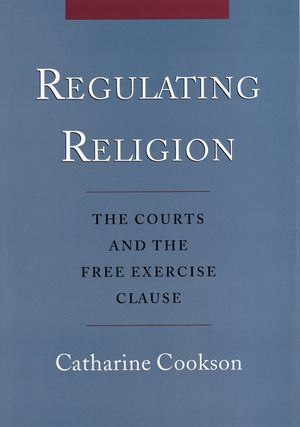
Jurisprudence regarding the Free Exercise of Religion Clause of the US Constitution is in a state of confusion. A series of rapid changes in the standard used by the Supreme Court to determine when a statute impermissibly restricts free exercise has left the public, legislators, and the lower courts without clear directions. At present, the trend is towards greater acceptance of government claims about the importance of regulation over religious practices.
This study challenges the wisdom of this judicial drift, and its false dichotomy between anarchy and a system that respects religious freedom. In its place the author offers a practical approach to resolving free exercise conflicts that could be used in both federal and state courts. Cookson proposes a casuistry-based method under which such conflicts would be treated as conflicts of principles. Demonstrating how this method should be applied, Cookson focuses on the specific details of people's lives, enabling the reader to see a claimed violation of religious freedom from the perspective of the community whose values are at stake.